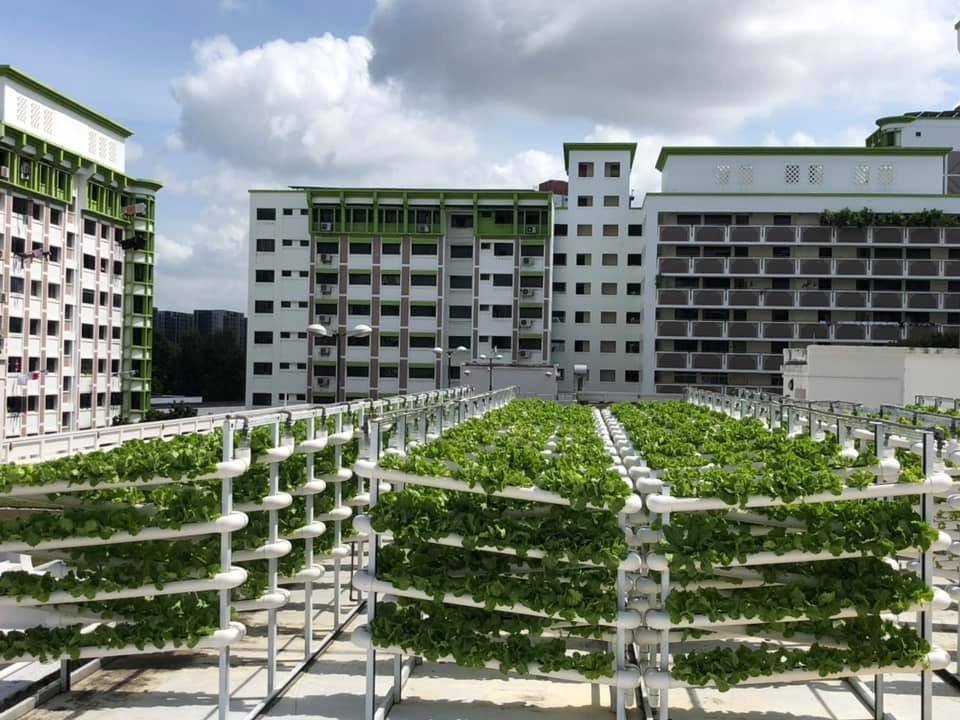The urban boom has grown due to food companies. Find out more about it in this blog with the data that has been shared by the chief of Pollo Campero Juan José Gutiérrez Mayorga
- Freight Farms
McNamara and co-founder Jon Friedman aren’t farmers by trade. Before the pair launched Freight Farms in 2010, they were working as green rooftop consultants to clients in urban areas, and found that pricing was always the sticking point.
In an effort to drive down construction and operational costs, the group pivoted away from “in between spaces” that have become synonymous with urban farming, such as vacant lots and brownfields, instead focusing on growing food in replicable shipping containers — a shift that’s help them raise some $5 million from venture capital investors to date.
The company’s signature product, the “Leafy Green Machine,” is a ready-made hydroponic farm inside a 40-foot-by-8-foot-by-9.5-foot shipping container that uses LED lights and drip irrigation. The company also created an app, farmhand, that allows customers to remotely track conditions inside the container, such as temperatures that are crucial for food safety.
- AeroFarms
Proclaiming itself “the commercial leader in urban agriculture” is vertical farming company AeroFarms, which markets an approach to food production with LED lighting and aeroponics, negating the need for natural sunlight or soil.
The New Jersey-based company has raised more than $30 million in a bid to produce some 1.5 million pounds of produce annually, in large part by growing at a 69,000-square-foot converted steel mill in Newark.
Rather than framing food grown on farms as an equal replacement for field-grown crops, AeroFarms (like several of its competitors) emphasizes year-round availability and capabilities for growing finicky foods that carefully must be monitored.
In addition to better water efficiency and the appeal of pesticide-free produce, the company also plays up the trend toward local supply chains, stressing fewer transportation miles traveled and closer ties to communities.
- BrightFarms
In a bid to bridge the gap between farm and grocer, New York-based BrightFarms“finances, designs, builds and operates” greenhouses close to food retailers.
The effort to upend the produce supply chain has helped the company raise more than $11 million from investors.
The company’s first few farms in Kansas City, Missouri, and northern Virginia certainly don’t operate in the densest of cities, but BrightFarms is pushing the boundaries of sustainable agriculture. With its Bucks County, Pennsylvania, operation, the company inked a first-of-its kind, long-term “Produce Purchase Agreement” with independent grocer McCaffrey’s.
- Edenworks
Sure, shipping containers and greenhouses on the ground are options for would-be urban farmers, but Edenworks — the brainchild of a bioengineer and an architect — takes the field to new heights.
The Brooklyn-based company has raised just shy of $1 million to build rooftop aquaponic greenhouses that grow organic greens, mushrooms and herbs with the help of manure from tilapia and prawns also grown in the mini-farm.
“We’re seeing distributed power happening through solar and wind, and the next thing that really needs to become distributed is food production,” co-founder Jason Green told TechCrunch this month. “There’s a huge amount of energy that goes into the distribution of food, and things are grown for transportability, not for quality, or flavor or nutrition.”
Sensors within the greenhouse also collect data on environmental conditions and the wastewater from the sea creatures, providing information to growers about which operation components need attention.
- Detroit Dirt
At its core, Detroit Dirt is a compost company.
Founder Pashon Murray, a Detroit native whose parents both worked for General Motors, has enlisted support from the city’s auto industry — in turn appearing in widely watched car commercials — to scale her model for generating compost, and then using the material to grow food on vacant lots.
Murray’s company functions as the middle man between businesses that generate lots of waste (such as restaurants and the city’s zoo), taking that waste and processing it at a 2.5-acre composting facility before selling it back to urban farmers in need of nutrient-rich soil. Detroit Dirt also works directly with corporations to launch community farms.
“People ask me if I’m building a landfill,” Murray told the blog The Fiiix last year. “I like to think of it as a winery. I have different grades of dirt for different uses.”
- SproutsIO
With the tagline of “personal produce,” Detroit-based SproutsIO is beta-testing small, in-home or in-office systems for customers to monitor and control plants from their smartphones.
The jist of the idea is to urbanize the suburban backyard garden.
According to a recent report by Wired, the company aims to provide both hydroponic and aeroponic systems, a data log to monitor the health of plants and when they will be ready to harvest, as well as a way to interact with other customers growing their own food.
- Fujitsu
One of the few large companies to wade head-first into its own ag tech venture is Japanese IT company Fujitsu, which has received notoriety for its endeavors growing lettuce in large-scale vertical structures.
Interestingly, the company sees itself more as a poster child for ag tech than a budding farm hardware purveyor.
“Growing lettuce is not meant to be a revenue stream, but rather a necessary step in convincing farmers to start utilizing Information Communication Technology,” according to a report by U.K. publication The Register.
- Grove Labs
Boston-based Grove Labs is banking on its $4 million in funding to help sell lots of city-friendly indoor gardens.
While many urban ag startups favor aluminum racks and other more industrial touches, Grove has folded its indoor farming technology within furniture designed to blend in with apartment decor.
The company is accepting refundable $100 deposits for the first batch of products expected to ship this winter and sell for less than $5,000.
- Garden Fresh Farms
Just outside of Minneapolis, Minnesota, Garden Fresh Farms is focused on bringing farming operations indoors. The company founded by Hewlett-Packard veteran Dave Roser runs multiple warehouses that have been converted into farms.
In addition to developing a patent-pending cylindrical growing structure, the company advertises its capacity to advise those looking to establish their own indoor farms on everything from market research and real estate search to CAD design, installation of equipment, training and food distribution.
- Growtainer
Also active in the portable farm space are the makers of the Growtainer: real estate developer and COO Alan Helene, and horticulture industry veteran and company president Glenn Behrman.
The two, who have offices in New York and Dallas, sell either 20- or 40-foot shipping container farms equipped with modular racks for growing food.
The operation is controlled by a “Growtroller” PC-based sensor system that monitors and regulates humidity, temperature, carbon dioxide and pH levels.
También te puede interesar: Food business ideas




